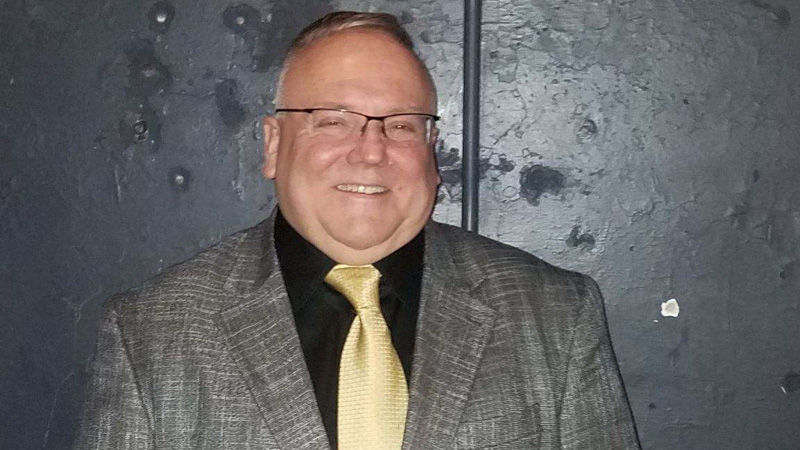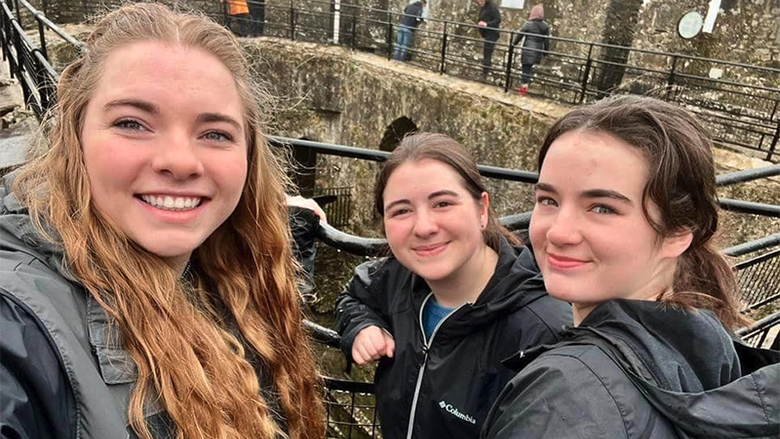

This dialog contains the full navigation menu for this site.

Sometimes the people who are the quietest are also the people who make the biggest difference to the world around them.
Penn State alumnus Scott Noxon is quiet and unassuming.
It’s not until someone asks pointed questions and gets to know more about him that they realize the mark he’s making on the world, and at Penn State Beaver, in many ways.
Noxon — who spent two years at Penn State Beaver before completing his degree at University Park — already endows a scholarship for Penn State Beaver students who are doing something to better the world around them.
Now, he’s making an impact once again by sponsoring a groundbreaking new scholarship for students involved in the LGBTQA community at Penn State Beaver. The Scott Noxon LGBTQA Scholarship is a $50,000 endowment that is the first of its kind to benefit a Commonwealth campus.
Noxon said he wanted to establish a scholarship for a demographic of student he feels connected to.
Consideration for the scholarship will be given to undergraduates who are academically outstanding and who advocate for, or contribute to, the lesbian, gay, bisexual, transgender, queer and ally community.
“Penn State Beaver is grateful to Scott Noxon for establishing this innovative scholarship,” Penn State Beaver Chancellor Jenifer Cushman said. “It is one more example of his generosity to the campus and our students over the years, and we are happy to have the honor of stewarding his gift.”
Noxon has an allegiance to Penn State Beaver that stemmed from his high school experience and his first year on campus.
He grew up in Arkansas, and just before his senior year of high school his family moved to the Pittsburgh area. It was a particularly difficult transition for him.
“I was torn away from my friends,” he said.
“On top of that, students and teachers made fun of this thick, southern accent. It all made for a miserable senior year."
After graduation he took a year off from school and then completed a semester at a community college.
Then, Noxon found himself at Penn State Beaver. Instead of feeling like an outsider, he looked around and saw a group of students just like him, students adapting to a new place and looking to reestablish themselves. People were friendly. He felt comfortable.
“I had a chance to make friends with new people,” he said, adding that the campus became a “home away from home.”
After two years, he moved to University Park. He graduated in 1984 with a major in business logistics, the precursor to today’s supply chain management major.
He still feels a connection with Penn State Beaver because of those early years spent there. “I was happy,” he said of his time at the campus.
After graduation, Noxon worked at Conrail, where he was in charge of managing inventory. He said he used what he learned at Penn State and kept detailed records that made it possible for jobs to move along at an efficient pace.
He was good at what he did and often said that he would do the job for half of what they paid him.
He was given larger and larger projects to manage, the largest of which was a $27 million track and signal rehabilitation from Conway Yards to Columbus, Ohio.
“All of my track and signal gangs loved me because I always had the equipment and material needed on time, while the other general maintenance gangs complained about their continual shortages,” he said.
But, like other industries in western Pennsylvania, the economy took a toll on the railroads, and Noxon lost his job in a sixth round of mass layoffs in 1992.
After a short stint owning a florist shop and a few other ventures, Noxon made a decision to take his career in a very different direction.
He opened a nightclub for the gay community.
Around that time, bars that catered to the LGBTQ community were small in number and weren’t exactly comfortable environments. “Filthy” is how he describes one bar he frequented that was known for the sewage that would drip through the ceilings from the bathrooms on the floor above. Club goers would have to walk around the bar dodging drips and covering their glasses.
“I said, ‘I could do better than this,’ and I did,” Noxon said.
He set out to create the kind of bar he would want to hang out in and opened The Pittsburgh Eagle, a place that, according to Noxon, became the largest nightclub for people living an alternative lifestyle in the region. He said the club drew people from the tri-state area during the ’90s.
From there he purchased Pegasus from a friend and competitor, a bar that to this day still sparks name recognition with just about anyone who circulated around the bar scene at that time.
Noxon said he hopes he’s remembered as a promoter and a club owner who brought groundbreaking acts to Pittsburgh and made people smile and laugh. The late Joan Rivers was one of the performers whom Noxon brought to Pittsburgh. She made an appearance at The Byham Theater as a fundraiser for The Lambda Foundation.
The Eagle and Pegasus are now closed. Noxon said the club scene has declined since the internet has taken over and become a place to meet people.
Today, Noxon owns one small club called THERE Ultra Lounge.
While it’s small, THERE is providing a niche, “a safe space for all,” Noxon said.
Noxon is the embodiment of a philanthropist. His charitable work and giving extends far beyond college scholarships.
He has a history of fundraising. One of his early missions was to pay for the funerals and cremations of friends and counterparts who had died of AIDS.
In the 1990s he worked with the Pittsburgh AIDS Task Force to provide private space in his clubs for local healthcare providers to administer HIV/AIDS tests to anyone who wanted one.
In fact, Noxon was awarded the Kerry Stoner Award by Allies for Health and Wellbeing in Pittsburgh on March 30, 2019. Stoner, who died from AIDS-related complications in 1993, was the founder and first executive director of the Pittsburgh AIDS Task Force, which was formed in 1985. The award is given each year to honor a person or organization that has shown commitment to Stoner’s legacy through a long-term dedication to Allies and the HIV/AIDS community.
Noxon was given the Kerry Stoner Award “in recognition of his more than three decades of support and commitment to the Allies mission and the HIV/AIDS community,” Mary Bockovich, of Allies, said. She continued, “Virtually since the agency’s inception, Scott … hosted numerous fundraisers at his establishments.”
Noxon “has been a steadfast donor of Allies, and most recently offered a matching gift of up to $50,000 to help Allies expand its reach to ask-risk communities,” Bockovich said.
Noxon said he and a group of interested people opened the World AIDS Museum & Education Center in Fort Lauderdale in 2014 to write and preserve the most accurate history of HIV/AIDS as well as to honor those who died as a result of the diseases it produced. The group included Penn State alumni, most notably Steve Stagon, who graduated in 1973, Noxon said.
“Scott has been strong advocate for individuals living with HIV and the greater LGBTQ community," Bockovich said. "While Scott shies away from the spotlight, his impact on Allies and the greater community has been tremendous.”
Noxon’s contributions to the community don’t end there.
Through the Pittsburgh Foundation, Noxon established a fund to assist veterans. According to the foundation’s website, he made a donation to help fund the Guardian Angel dog program as a way to honor the memory of his friend Paul Myles, a U.S. Army veteran who took his own life. The program pairs Pittsburgh-area veterans with dogs that protect, assist and give companionship to them. Noxon also supported the purchase of military-grade knockdown transportation crates for Pittsburgh Police K9s.
Noxon’s next venture is to fund work in the Middle East, where he said diabetes is epidemic in the area due to obesity, poor dietary choices and sedentary lifestyles.
“We will use cutting edge treatment for diabetic wounds and prevent amputation. We have gathered an amazing group of American doctors and researchers that will be treating people and doing continuing studies in an effort to slow the advance of the disease,” Noxon said.
The idea of the company is to “save limbs and save lives,” Noxon said. “I’m the money behind it. We are hoping that this is going to turn out to be something very good for the whole world.”

